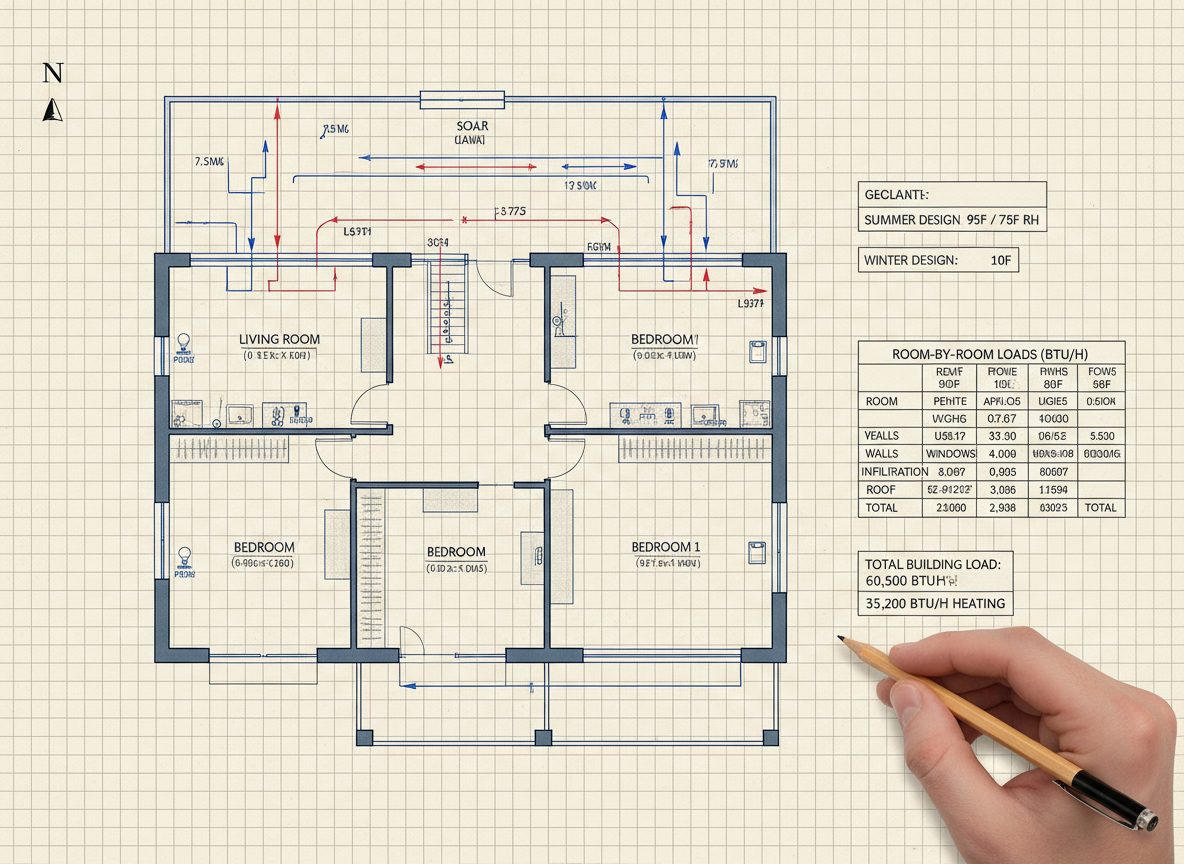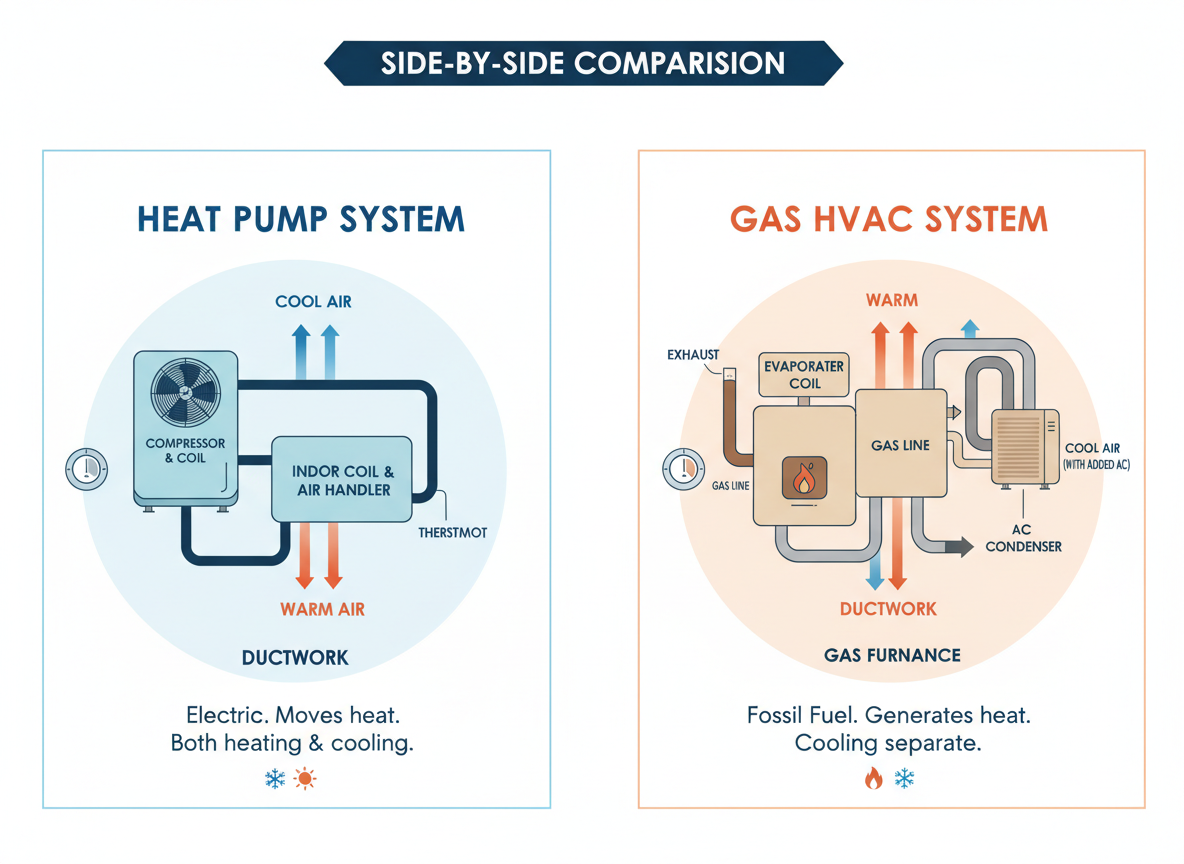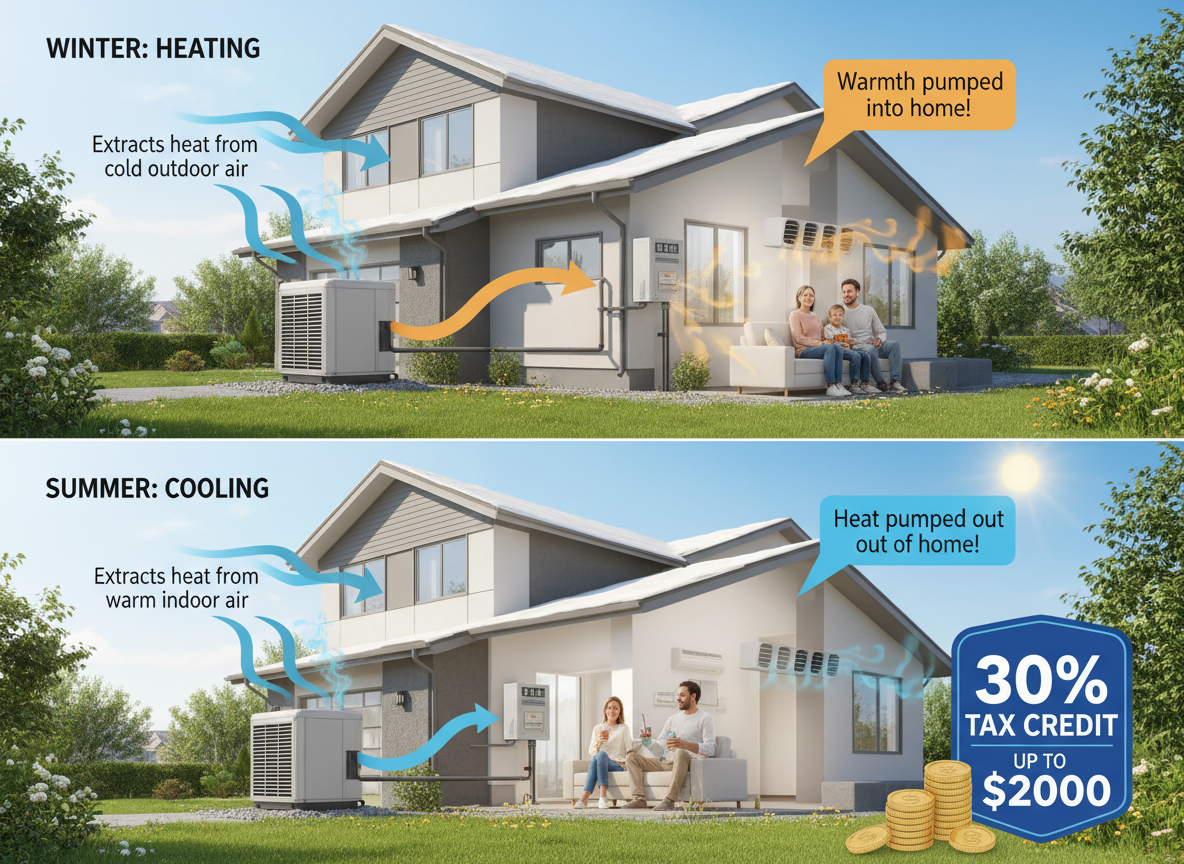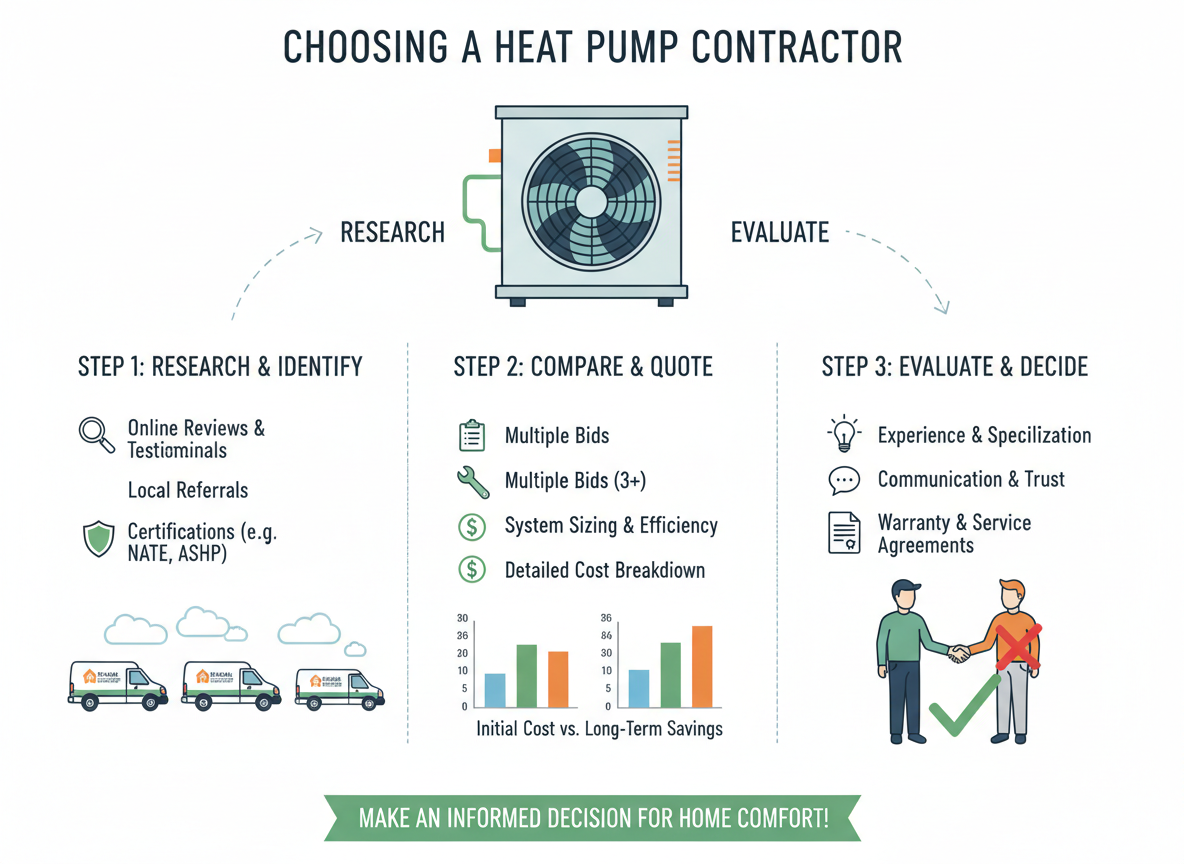.jpg)
Air conditioner coils freezing up is a common issue that many homeowners encounter, especially during the hot summer months. While it might seem counterintuitive for something designed to cool your home to become frozen, this problem can signal various underlying issues within your HVAC system. Frozen A/C coils can reduce your system's efficiency, lead to costly AC repairs, and leave you without cooling when you need it most. Understanding what causes frozen A/C coils is crucial for preventing damage and maintaining optimal performance in your air conditioning unit. In this article, we'll explore the common causes of frozen coils and how to address them.
What is the Outdoor Condenser Coil?
The outdoor condenser coil is a key component of an air conditioning system, responsible for releasing the heat that has been absorbed from inside your home. Located in the outdoor unit of the A/C system, the condenser coil works by receiving hot refrigerant gas from the indoor evaporator coil. As air passes over the condenser coil’s fins, the heat from the refrigerant is dissipated into the outside air, causing the refrigerant to cool down and turn back into a liquid. This process is essential for the A/C system to maintain a continuous cooling cycle. Proper maintenance of the condenser coil, such as cleaning it regularly, is vital for efficient performance and to prevent system malfunctions.
What is the Indoor Evaporator Coil?
The indoor evaporator coil is a critical part of your air conditioning system, responsible for absorbing heat from the air inside your home. Located inside the air handler or attached to the furnace, typically near the blower fan, this coil works by circulating cold refrigerant through its tubing. As warm indoor air passes over the evaporator coil's fins, the refrigerant absorbs the heat, cooling the air before it's circulated back into your home. This process also dehumidifies the air, as moisture condenses on the cold coil and drains away. A clean and functioning evaporator coil is essential for efficient cooling and overall system performance.
Symptoms of Frozen Coils
Frozen air conditioner coils can cause a variety of symptoms that indicate your system is struggling to function properly. Common signs of frozen coils include:
1. Reduced airflow: You may notice weak or minimal airflow coming from the vents, as the frozen coils prevent the air from moving efficiently through the system.
2. Warm air from vents: Instead of cooling your home, the A/C may blow warm or room-temperature air due to the blockage caused by ice buildup.
3. Visible ice on the indoor unit: Ice or frost may accumulate around the indoor evaporator coil, or even on refrigerant lines, which is a clear indicator of frozen coils.
4. Unusual noises: You might hear whistling, hissing, or even a loud banging sound as the system struggles to operate with frozen coils.
5. Increased energy bills: A frozen coil forces the A/C unit to work harder, consuming more energy and leading to higher utility bills.
6. Frequent cycling: The A/C may turn on and off more often than usual as it tries to maintain the set temperature, which can be an indicator of frozen coils disrupting the cooling cycle.
If these symptoms are present, it’s important to address the issue promptly by scheduling AC repair to prevent damage to the system and restore proper cooling.
What Causes Frozen Coils?
Frozen A/C coils are a common issue in air conditioning systems and can be caused by several factors. Here's a breakdown of why it happens:
1. Restricted Airflow
• Dirty Air Filters: When filters are clogged with dirt and debris, they restrict airflow over the evaporator coils, causing the coils to get too cold and freeze.
• Blocked Vents or Ducts: If supply vents or return vents are blocked, the system can't circulate air properly, leading to frozen coils.
• Fan Problems: If the blower fan is malfunctioning or not running at full speed, the lack of airflow can cause the coils to freeze.
2. Low Refrigerant Levels
• Refrigerant Leaks: If your system is low on refrigerant due to leaks or insufficient charge, it causes the pressure in the evaporator coils to drop. This lower pressure leads to moisture from the air freezing on the coils.
• Improper Installation or Maintenance: If the refrigerant charge was incorrect during installation or after service, it can lead to freezing.
3. Thermostat or Control Issues
• Thermostat Set Too Low: If the thermostat is set too low, especially in cooler weather, the system may run continuously, and the evaporator coil can freeze.
• Malfunctioning Thermostat: A faulty thermostat may not properly regulate the system, causing freezing.
4. Moisture and Humidity
• High Humidity: Excess moisture in the air can collect on the evaporator coil. If the coil is too cold, this moisture can freeze.
• Clogged Drain Line: If the condensate drain line is clogged, excess water may back up, causing the coils to freeze.
5. Mechanical Issues
• Malfunctioning Expansion Valve: This valve controls the flow of refrigerant into the evaporator coil. If it’s not working correctly, it can either allow too much or too little refrigerant to enter the coils, leading to improper cooling and, in turn, freezing of the coils.
• Damaged Coils: If the evaporator coils are damaged, they may not transfer heat effectively, disrupting the refrigerant flow. This can cause the coils to become too cold, leading to freezing. Damaged coils also affect the system's efficiency, potentially making the compressor work harder and causing other related issues.
What to do if you Have Frozen A/C Coils
If you find that your A/C coils are frozen, it’s important to take steps to address the issue to prevent further damage and restore proper cooling. Here’s what you should do:
1. Turn off the A/C: Immediately switch off your air conditioner to prevent further ice buildup and potential damage to the system.
2. Allow the coils to thaw: Give the frozen coils time to thaw out naturally. This may take several hours, so be patient and avoid using any heat sources to speed up the process, as this can cause additional damage.
3. Contact A Professional: There is an increased risk of system damage so it is best to contact a professional for AC repair to determine the cause of the frozen coils and get your unit back up and running.
How to Help Prevent Frozen A/C Coils
Preventing frozen A/C coils is crucial for maintaining the efficiency and longevity of your air conditioning system. Here are some key steps to help prevent your coils from freezing:
1. Change or clean air filters regularly: Dirty or clogged air filters restrict airflow, causing the evaporator coil to freeze. Check and replace filters every 1-3 months, depending on usage and indoor conditions.
2. Ensure proper airflow: Make sure your vents are open and unblocked by furniture or curtains, allowing air to flow freely throughout your home. Obstructed airflow can cause the evaporator coil to freeze.
3. Schedule regular maintenance: Have your A/C unit professionally serviced at least once a year. Technicians will check for refrigerant levels, clean the condenser coil, and inspect the overall system for potential issues that could lead to freezing.
4. Monitor refrigerant levels: Low refrigerant levels can lead to reduced pressure in the evaporator coil, causing it to freeze. If you suspect a refrigerant leak, contact a professional to diagnose and fix the problem.
5. Keep the outdoor unit clean: Regularly check the outdoor condenser unit for debris like leaves, dirt, and grass clippings. A blocked condenser coil can affect the entire system, leading to frozen indoor coils.
6. Check thermostat settings: Avoid setting the thermostat too low, as this can cause the evaporator coil to become too cold, potentially leading to freezing. Keep the thermostat set at a moderate temperature to allow the system to operate efficiently.
7. Inspect the condensate drain line: A clogged drain line can lead to excess moisture buildup, which can contribute to frozen coils. Regularly inspect and clear any blockages in the drain line to ensure proper drainage.
Following these preventive measures can help you avoid the inconvenience of frozen A/C coils and maintain a smooth-running, energy-efficient cooling system.
Contact LA Heating and Air
Understanding and addressing the causes of frozen A/C coils is essential for maintaining the efficiency and longevity of your air conditioning system. By recognizing the signs of frozen coils and taking proactive steps—such as regular maintenance, ensuring proper airflow, and monitoring refrigerant levels—you can prevent disruptions to your cooling system and avoid costly repairs. If you encounter a frozen coil, timely action and professional assistance can help resolve the issue and restore optimal performance. Keeping your air conditioner in good working condition not only ensures a comfortable indoor environment but also extends the lifespan of your HVAC system, ultimately saving you time and money in the long run. Give us a call today or contact us online to schedule your AC repair or routine maintenance.
What Causes Frozen A/C Coils? Related Posts:






















.png)














